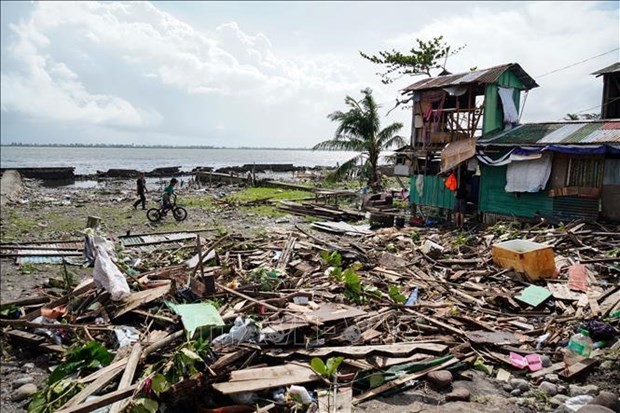
Most of the fatalities were reported in Leyte, Iloilo and Capiz provinces, according to the Philippine National Disaster Risk Reduction and Management Council.
The Christmas typhoon, known locally as Typhoon Ursula, hit the Philippines with winds of up to 120 kph and gusts of 150 kph, heavy rain and flooding. Among the worst hit were Samar island, Tacloban city, Capiz province, Aklan province, the northern area of Iloilo province and Antique province.
More than 16,000 people spent the night in evacuation centres as the typhoon blew in with monster wind that tore roofs off houses, schools, commercial and government buildings, felled trees and electric posts.
Thousands more who were trying to get home for Christmas were stranded at ports in the region after the Coast Guard shuttered shipping as the typhoon’s powerful winds began to make sea travel dangerous on December 23.
Domestic airlines serving routes to the Visayas cancelled 40 flights due to the typhoon.
As of December 25 afternoon, the typhoon had made seven landfalls in Visaya and Mimaropa provinces.
The Philippines is the first major landmass facing the Pacific typhoon belt, and is hit by an average of about 20 major storms a year. Many of the storms are deadly, and they typically wipe out harvests, homes and infrastructure, keeping millions of people perennially poor.
























